Guidance Fraud Prevention Standard for Counter Fraud Professionals
Principal Category: Fraud Prevention/Criminology/Cybersecurity
Authors: UK Government
Date:
DOI LINK:
LICENSE:
Source:
Professional Standard and Competencies for the Fraud Prevention Discipline
Purpose
This document is part of the wider government counter fraud standards and guidance, which cover all the core disciplines and subdisciplines in the Government Counter Fraud Framework.
The Government Counter Fraud Professional Standards and Guidance are designed to present a consistent cross-government approach to countering fraud, raise the capability of individuals and through this, increase the quality of organisations’ counter fraud work. Their aim is:
- to describe the knowledge, skills and experience (professional standards and competencies) needed for an individual to achieve practitioner level in counter fraud work in their desired discipline – the document directs you to a competency framework which outlines how someone can progress to this standard
- to provide guidance to those using the standards on the processes and products they will use to deliver the discipline and what they should seek to put in place in the organisation to deliver the discipline effectively
The organisational guidance, also known as ‘Approved Professional Practice’, can also be referenced when considering what should be in place in an organisation in order to use this discipline effectively.
These standards form the basis of the Prevention and Deterrence discipline that is being established within government. To be acknowledged as a counter fraud professional, these standards will have to be met. Guidance is being developed and will be made available on Civil Service Learning counter fraud pages regarding how you can be recognised as a member of the Government Counter Fraud Profession (GCFP).
These standards have been developed in conjunction with a range of stakeholders, including the Commonwealth Fraud Prevention Centre (CFPC) in Australia. This is the first GCFP Standard to be launched internationally, with a common focus on preventing fraud and reducing the impact fraud has on public services.
This document focuses on an individuals’ fraud prevention capability.
The professional standards and competencies are not intended to cover every eventuality or every specific issue that may arise and should be adapted to the organisation’s resources and fraud risk profile.
Introduction
A counter fraud professional should be able to understand fraud risk, recognise prevention opportunities and collaborate with others to design, implement and evaluate controls.
Fraud has an impact at a personal, organisational and societal level;
- at a personal level, it can cause anxiety, depression, a loss of money and potential injury from goods and services that are not fit for purpose
- at an organisational level, it can cause significant financial losses, a loss of employment, lower staff morale, reputational damage and a loss of public confidence in the public body concerned
- at a societal level, it can lead to the loss of large sums to the economy, higher public spending, an increase in national debt, an increase in pressure on law enforcement and can fund other forms of crime such as terrorism
“A counter fraud professional should be able to understand fraud risk, recognise prevention opportunities and collaborate with others”
Research Study/Article/Document
https://scampsychology.org/wp-content/uploads/2023/08/3270_GCFP_Prevention_Standard_V.5.pdf
IMPORTANT NOTE: This article is intended to be an introductory overview of complex psychological, neurological, physiological, or other concepts, written primarily to help victims of crime understand the wide-ranging actual or potential effects of psychological trauma they may be experiencing. The goal is to provide clarity and validation for the confusing and often overwhelming symptoms that can follow a traumatic event. It is critical to understand that this content is for informational purposes only and does not constitute or is not a substitute for professional medical advice, diagnosis, or treatment. If you are experiencing distress or believe you are suffering from trauma or its effects, it is essential to consult with a qualified mental health professional for personalized care and support.

Welcome to the SCARS INSTITUTE Journal of Scam Psychology
A Journal of Applied Scam, Fraud, and Cybercrime Psychology – and Allied Sciences
A dedicated site for psychology, victimology, criminology, applied sociology and anthropology, and allied sciences, published by the SCARS INSTITUTE™ – Society of Citizens Against Relationship Scams Inc.
TABLE OF CONTENTS
A Question of Trust
At the SCARS Institute, we invite you to do your own research on the topics we speak about and publish, Our team investigates the subject being discussed, especially when it comes to understanding the scam victims-survivors experience. You can do Google searches but in many cases, you will have to wade through scientific papers and studies. However, remember that biases and perspectives matter and influence the outcome. Regardless, we encourage you to explore these topics as thoroughly as you can for your own awareness.
Please Leave A Comment
Recent Comments
On Other Articles
[better_recent_comments number=”5″ format=”{avatar} on {post}: “{comment}” {date}” avatar_size=”20″]
A Note About Labeling!
We often use the term ‘scam victim’ in our articles, but this is a convenience to help those searching for information in search engines like Google. It is just a convenience and has no deeper meaning. If you have come through such an experience, YOU are a Survivor! It was not your fault. You are not alone! Axios!
Statement About Victim Blaming
Some of our articles discuss various aspects of victims. This is both about better understanding victims (the science of victimology) and their behaviors and psychology. This helps us to educate victims/survivors about why these crimes happened and to not blame themselves, better develop recovery programs, and to help victims avoid scams in the future. At times this may sound like blaming the victim, but it does not blame scam victims, we are simply explaining the hows and whys of the experience victims have.
These articles, about the Psychology of Scams or Victim Psychology – meaning that all humans have psychological or cognitive characteristics in common that can either be exploited or work against us – help us all to understand the unique challenges victims face before, during, and after scams, fraud, or cybercrimes. These sometimes talk about some of the vulnerabilities the scammers exploit. Victims rarely have control of them or are even aware of them, until something like a scam happens and then they can learn how their mind works and how to overcome these mechanisms.
Articles like these help victims and others understand these processes and how to help prevent them from being exploited again or to help them recover more easily by understanding their post-scam behaviors. Learn more about the Psychology of Scams at www.ScamPsychology.org
Psychology Disclaimer:
All articles about psychology, neurology, and the human brain on this website are for information & education only
The information provided in these articles is intended for educational and self-help purposes only and should not be construed as a substitute for professional therapy or counseling.
While any self-help techniques outlined herein may be beneficial for scam victims seeking to recover from their experience and move towards recovery, it is important to consult with a qualified mental health professional before initiating any course of action. Each individual’s experience and needs are unique, and what works for one person may not be suitable for another.
Additionally, any approach may not be appropriate for individuals with certain pre-existing mental health conditions or trauma histories. It is advisable to seek guidance from a licensed therapist or counselor who can provide personalized support, guidance, and treatment tailored to your specific needs.
If you are experiencing significant distress or emotional difficulties related to a scam or other traumatic event, please consult your doctor or mental health provider for appropriate care and support.
Also, please read our SCARS Institute Statement About Professional Care for Scam Victims – here
If you are in crisis, feeling desperate, or in despair please call 988 or your local crisis hotline.
SCARS Institute Resources:
- If you are a victim of scams, go to www.ScamVictimsSupport.org for real knowledge and help
- Enroll in SCARS Scam Survivor’s School now at www.SCARSeducation.org
- To report criminals, visit reporting.AgainstScams.org – we will NEVER give your data to money recovery companies like some do!
- Sign up for our free support & recovery help at www.SCARScommunity.org
- Follow us and find our podcasts, webinars, and helpful videos on YouTube: www.youtube.com/@RomancescamsNowcom
- SCARS Institute Songs for Victim-Survivors: www.youtube.com/playlist…
- Learn about the Psychology of Scams at www.ScamPsychology.org
- Dig deeper into the reality of scams, fraud, and cybercrime at www.ScamsNOW.com and www.RomanceScamsNOW.com
- Scam Survivor’s Stories: www.ScamSurvivorStories.org
- For Scam Victim Advocates, visit www.ScamVictimsAdvocates.org
- See more scammer photos on www.ScammerPhotos.com


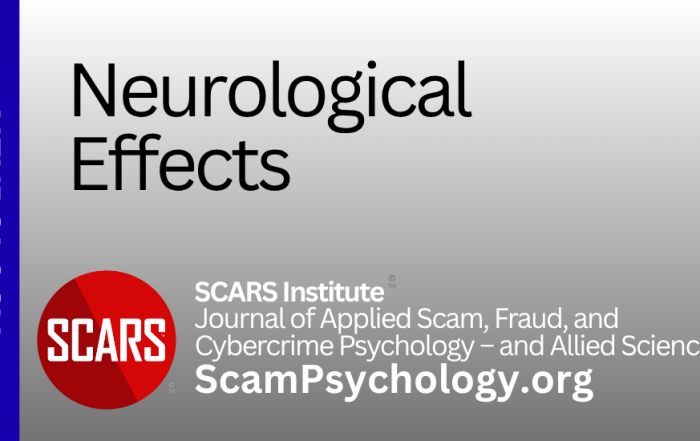

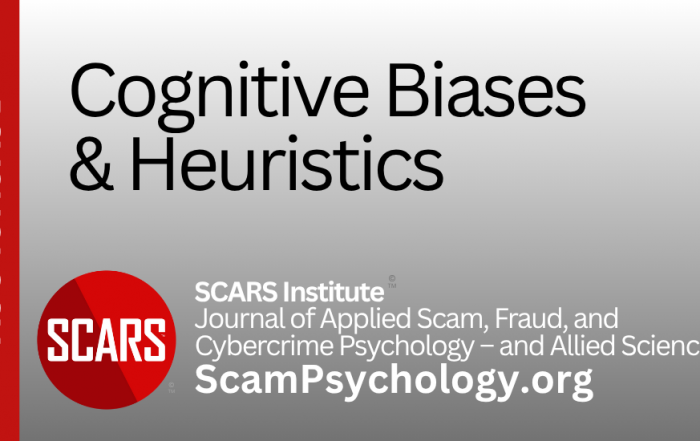
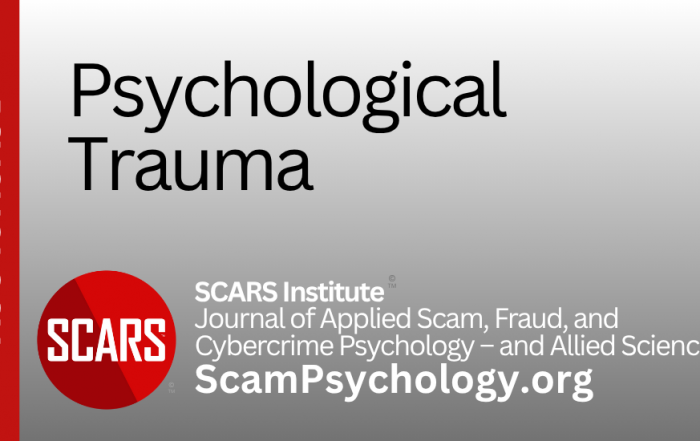
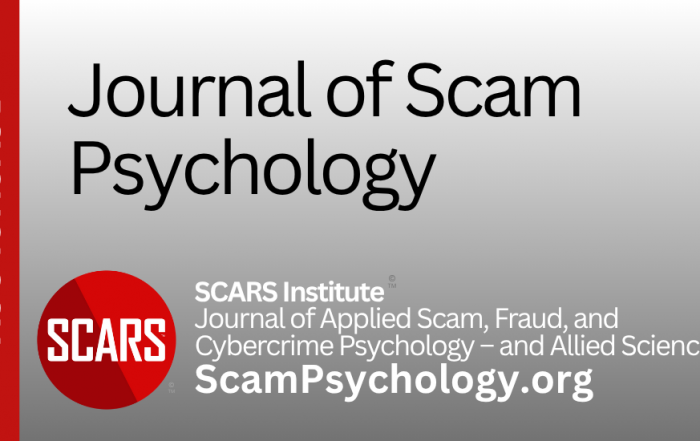
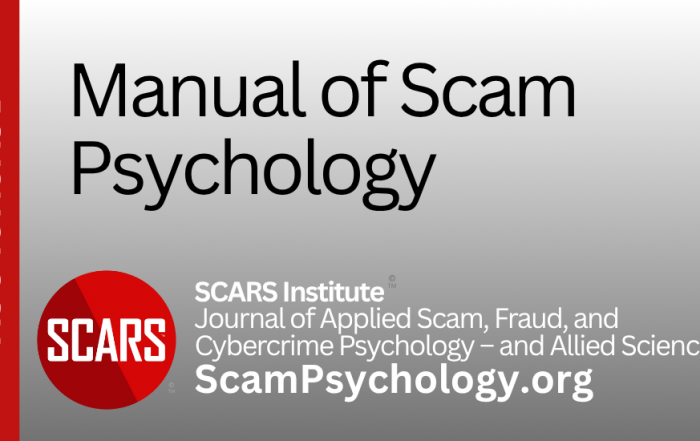

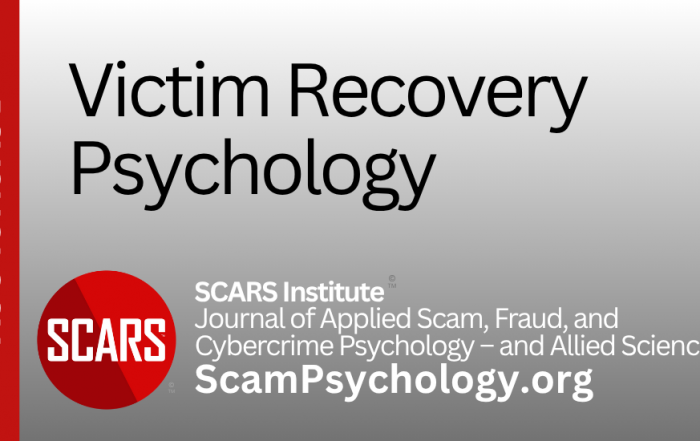
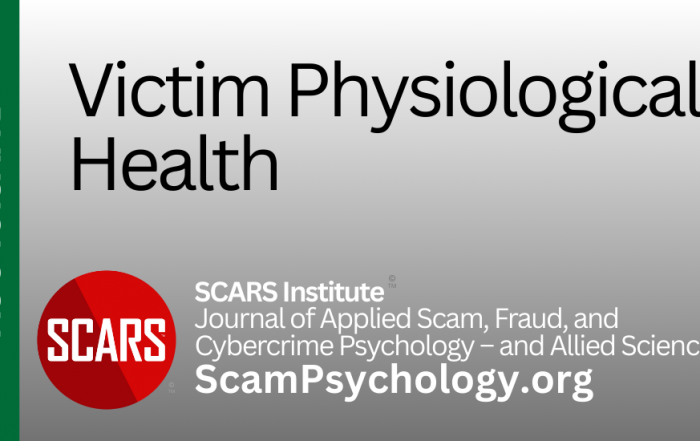

![niprc1.png1_-150×1501-11[1]](https://scampsychology.org/wp-content/uploads/2025/05/niprc1.png1_-150x1501-111.webp)